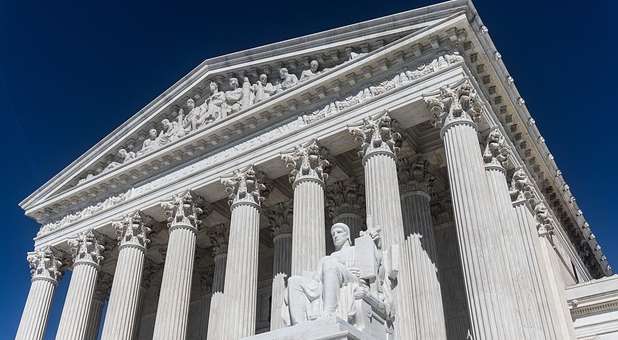What if all nine Supreme Court justices were white women? Or Black men? What if they were Hispanic? Or Asian American? Or Jewish? Would that rightly reflect our nation? Would it even feel right? Of course, if the only qualified justices were all white women or Black men or Hispanic or Asian American or Jewish, we would have no choice. But assuming that was not the case, by our design and our intent, how diverse should the Supreme Court be?
Speaking in favor of President Biden’s promise to nominate a Black female justice to the Court, Sen. Lindsay Graham said on CBS News’ Face The Nation, “Put me in the camp of making sure the court and other institutions look like America. You know, we make a real effort as Republicans to recruit women and people of color to make the party look more like America.”
But that is how our court systems work?
Last week, incoming Georgetown law professor Ilya Shapiro created a firestorm of controversy when he tweeted, “Objectively best pick for Biden is Sri Srinivasan, who is solid [progressive] and [very] smart. Even has identity politics benefit of being first Asian (Indian) American. But alas doesn’t fit into last intersectionality hierarchy so we’ll get lesser black woman. Thank heaven for small favors?”
He added, “Because Biden said he’s only consider [sic] black women for SCOTUS, his nominee will always have an asterisk attached. Fitting that the Court takes up affirmative action next term.”
Was Shapiro demeaning Black women as “lesser”? Obviously not, although, as he admitted, his tweet was poorly worded.
His point was that, objectively speaking, given Biden’s values and vision, Sri Srinivasan would be the best available candidate.
But what if the composition of the court were terribly imbalanced? What if a significant sector of the population had never been represented on the court? And what if someone from this sector were highly qualified? Would it be wrong to nominate that judge for the purpose of having a more diverse court? And could such a nomination be called “affirmative action”?
Republican Sen. Roger Wicker came under attack when he said, “The irony is the Supreme Court, at the very same time, is hearing cases about this sort of affirmative racial discrimination and while adding someone who is the beneficiary of this sort of quota. The majority of the court might be saying, writ large, it’s unconstitutional. We’ll see how that irony works out.”
Graham, for his part, disagreed, saying, “You know, we make a real effort as Republicans to recruit women and people of color to make the party look more like America. Affirmative action is picking somebody not as well qualified for past wrongs.”
In that sense, without a doubt, affirmative action has no place in nominating justices to the highest court in the land. The very thought of it is frightening. What would happen if unqualified justices had the power to make generation-impacting, landmark decisions? (Some would argue that some of our current justices are not truly qualified, but that’s another discussion.)
In my view, as a complete layman when it comes to legal matters, Biden’s great error was in drastically limiting his pool up front, saying that he wanted to nominate a Black woman.
It would have been far better had he said, “We will carefully review the most qualified candidates available. And if one of those is a Black woman, I would consider it a privilege to put her forward for consideration.”
That would have been far less controversial or objectionable, since all of us know that gender or ethnicity have come into play when nominating previous justices. Not only so, but there are always a number of potential candidates, each of them reflecting different judicial philosophies and having different, unique qualifications.
And so there was purpose in selecting a first Black justice (or female justice or Hispanic justice), and that purpose was welcomed and affirmed by others.
Not only so, but President Trump promised to nominate a female justice to replace Ruth Bader Ginsburg. To quote him exactly, “It will be a woman.”
And President Reagan promised to nominate our first female Supreme Court justice. To quote him directly, he said, “I am announcing today that one of the first Supreme Court vacancies in my administration will be filled by the most qualified woman I can possibly find. … It is time for a woman to sit among the highest jurists.”
Why, then, was this OK, but Biden’s pledge, first made during a presidential debate, is not OK?
The answer, again, would be that he drew much too small of a circle, thereby prejudicing his choices in an unfair and potentially discriminatory manner.
But the idea that the Supreme Court should be diverse and representative of our nation is a positive concept and, in and of itself, hardly controversial anymore.{eoa}
Read articles like this one and other Spirit-led content in our new platform, CHARISMA PLUS.
See an error in this article?
To contact us or to submit an article























